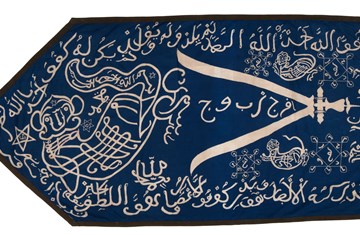What is Shi'a Islam
The historical formation of the worldwide Muslim community or Umma, as it is known in Arabic, has resulted in a great deal of diversity that reflects a rich intellectual, spiritual, and institutional pluralism.
In seeking to express a response to the primal message of Islam, Muslims have developed distinct perspectives that have led various groups to coalesce around different interpretations of the core message of the Qur’an and the example of the Prophet Muhammad. One such perspective is that of Shi‘a Islam.
Rather than perceive these expressions as sectarian in a narrow sense, it is more appropriate to recognise them as representing different communities of interpretation with diverse views of how the ideals of Islam might be realised in the life of the Umma.Unfortunately, much early scholarship on Shi‘ism has represented this perspective as a dissident voice or heterodoxy, and in some cases has even characterised it as a ‘Persian’ response to ‘Arab’ Islam. Recent scholarship has created a more balanced view of Shi‘ism.
Thus, it is now possible to move beyond stereotypical assumptions and reject the viewthat there is an ‘orthodox’ or ‘authentic’ Islam, from which Shi‘ism is a departure.

Dr Farhad Daftary
Co-Director and Head of the Department of Academic Research and Publications
An authority in Shi'i studies, with special reference to its Ismaili tradition, Dr. Daftary has published and lectured widely in these fields of Islamic studies. In 2011 a Festschrift entitled Fortresses of the Intellect was produced to honour Dr. Daftary by a number of his colleagues and peers.

Professor Azim Nanji
Azim Nanji is currently Special Advisor to the Provost of the Aga Khan University, and a member of the Board of Directors of the Global Centre for Pluralism in Ottawa, a joint partnership between His Highness the Aga Khan and the Government of Canada. He has held many prestigious academic and administrative appointments, most recently as Senior Associate Director of the Abbasi Program in Islamic Studies at Stanford University, where he was also lecturer in the Department of Religious Studies. From 1998 to 2008, Professor Nanji served as Director of the Institute of Ismaili Studies in London.
Professor Nanji has published numerous books and articles on religion, Islam and Ismailism, including: The Nizari Ismaili Tradition (1976), The Muslim Almanac (1996), Mapping Islamic Studies (1997) and The Historical Atlas of Islam (with M. Ruthven) (2004) and The Dictionary of Islam (with Razia Nanji), Penguin 2008. In addition, he has contributed numerous shorter studies and articles in journals and collective volumes including The Encyclopaedia of Islam, Encyclopaedia Iranica, Oxford Encyclopaedia of the Modern Islamic World, and A Companion to Ethics. He was the Associate Editor for the revised Second Edition of The Encyclopaedia of Religion.
Within the Aga Khan Development Network, he has served as a member of the task force for the Institute for the Study of Muslim Civilisations (AKU-ISMC) and Vice Chair of the Madrasa-based Early Childhood Education Programme in East Africa. He served as a member of the Steering Committee of the Aga Khan Award for Architecture in 1998, 2001 and 2016.










